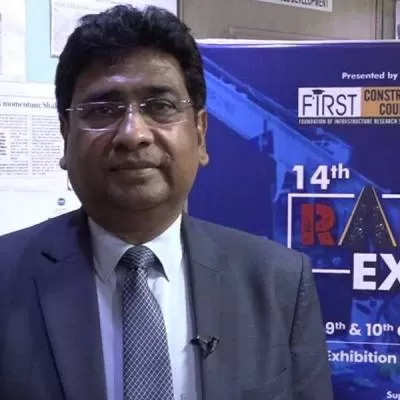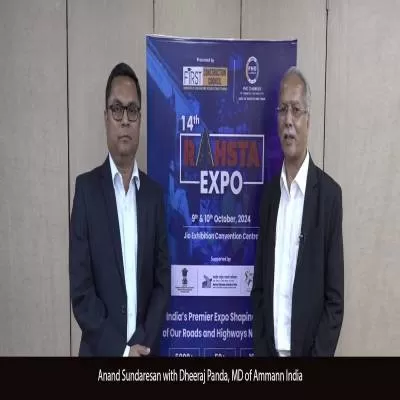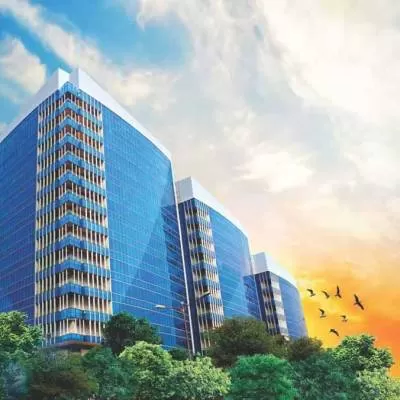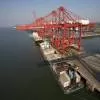- Home
- Real Estate
- Building Discord
Building Discord
Janaki Krishnamoorthi presents the 17th in a series of case studies referred for arbitration.
A nationalised bank entered into an agreement with a contractor to construct a building for staff quarters in a Mumbai suburb in April 2001. The project was to commence in September 2001 and reach completion within 24 months. However, the work did not progress beyond the plinth level and there was enormous delay even in coming up to this level. The contractor alleged that the work was delayed owing to late handing over of the site by the bank; delayed shifting of the pipelines that obstructed the work; and non-issue of the commencement certificate (CC) by the municipality for construction above plinth level. On the other hand, the bank alleged that the contractor did not mobilise sufficient resources to complete the work on time and the municipality did not issue further CC as the plinth work was not done properly.
The work came to a standstill when the municipal authorities issued a stop work notice letter in July 2003. In April 2004, the bank informed the contractor that the contract had come to an end on expiry of time schedule and thereafter asked it to vacate the premises. With the contractor and bank blaming each other for the delay and work stoppage, disputes arose on several related issues and the matter went to court. The Mumbai High Court appointed Justice Hosbet Suresh (retd) as arbitrator for settling the disputes by an order in July 2004. Both parties represented by advocates made their submissions through documents. There was no oral evidence.
Contractor’s claims
The contractor filed several claims ranging from reimbursement of rebate amount paid by him to the respondent, pending payment against final bill, extra expenses incurred for dewatering, mechanical excavation and excavation in soft rock instead of ordinary soil and additional lift of soil to compensate for idling of resources, loss of productivity and profit, reimbursement of expenses owing to insufficient work, damage to reputation, and return of security deposit. The majority of the claims submitted were rejected by the arbitrator on the ground that they were either not maintainable or lacked documentary proof. Some of the major claims of the contractor and the arbitrator’s rulings are enumerated as follows.
Claim for return of rebate amount
Amount claimed and awarded:Rs. 1,032,845
Through a letter in December 2000, the respondent intimated all bidders that they could allow mobilisation advance to the extent of 10 per cent of the tender amount and asked them to submit their revised quote. In response, the contractor offered an overall rebate of 7.70 per cent on its earlier quoted price. Eventually, however, no mobilisation advance was offered by the respondent and hence the contractor demanded refund of rebate amount given against RA bills amounting to Rs 1,032,845. The respondent contended that the rebate offer was unconditional and could not be linked to mobilisation advance, which in itself was discretionary as the letter mentioned that they “may allow” mobilisation advance. However, the arbitrator upheld the claim saying that the words “may allow” cannot be interpreted as “may or may not allow” and the respondent’s letter was a clear offer to induce bidders to revise their price.
Claim for pending payment against final bill
Amount claimed: Rs 1,632,747 Amount awarded: Rs. 54,511
As the first final bill submitted by the parties had several discrepancies, the arbitrator asked the parties to jointly prepare the final bill with respective comments on the disputed items, which was complied with. The claimant disputed certain measurements mentioned in the Measurement Book. He also disputed rates of certain materials for which he had submitted revised rates to respondent while the work was in progress. Hence he claimed that an amount of Rs 1,632,747 was payable to him by the respondent. On the other hand, the respondent argued that as per the contract terms, any disagreement regarding measurements and rates should have been referred to a competent authority. It also claimed that all bills were paid as per the rates prescribed in the Bill of Quantities (BOQ) or as per agreed rates.
The arbitrator observed that the claimant had no records to prove that the measurements in the Measurement Book were incorrect and that he had referred the issue to a competent authority as required under the contract. With regards to rates, the arbitrator noted that the claimant had again no proof to show that the revised rates submitted by him were accepted by the respondent or the competent authority. Therefore, the arbitrator allowed the claim only in part accepting just two proven items relating to felling of trees and anti-termite treatment. Of the nine trees cut down, the respondent had only paid for five trees and the contractor had demanded the balance payment at the agreed rate. With respect to anti-termite treatment, the respondent had made part payment and the claim was for the balance sum. The arbitrator thus awarded a total of Rs 54,511 to the claimant, which included Rs 19,400 (balance against tree felling) and Rs 35,111 (balance against anti-termite treatment) and rejected the rest of the items under the claim.
Claim against expenses incurred for de-watering
Amount claimed: Rs 431,874
Amount awarded: Nil
According to the contractor, there was continuous seepage of water in the excavated area from the pipeline in the basement, from adjoining buildings and also owing to higher water table. Therefore, continuous dewatering was required, which was not included in the BOQ. Hence, it claimed that it should be compensated for separately. The contractor had accordingly worked out a sum of Rs 431,874, which included the hiring charges of diesel and electric pumps and fuel costs. The respondent argued that the contractor should have gauged the situation at site before submitting his quotation and further contended that under the contract terms it was the responsibility of the claimant to remove any water that accumulated until the building was handed over. Though the arbitrator maintained that the said contract term was not applicable in this case, he rejected the claim as the contractor had no documentary proof of the expenses incurred.
Claim for reimbursement of expenses incurred owing to idling of resources
Amount claimed at actuals:Rs 11,445,237
Amount claimed under Hudson Formula: Rs 4,174,995
Amount awarded: Nil
According to the contractor there were four periods of delay (as follows) when his machinery, equipment and labourers were idling:
a) When the site was handed over in September 2001 instead of April 2001
b) During shifting of pipelines that obstructed work from November 2001 to May 2002. The respondent, however, pointed out that during this period, the contractor was actually paid to the tune of Rs 1.29 crore for work done and hence the staff and machinery could not have been idle.
c) When CC was not available and work above plinth level could not progress from April 2002. The respondent attributed this delay to the claimant as the municipality declined to issue further CC because the plinth was not completed by the claimant.
d) When work stopped from May 2002 to May 2004 for want of CC and owing to municipality issuing a stop work notice in July 2003. In April 2004, the respondent, through a letter, informed the claimant that the contract had come to an end and with another letter in May 2004 asked the contractor to vacate the premises
Based on the above circumstances, the contractor claimed an amount of Rs 11,445,237 under plant and machinery, idling staff expenses and depreciation, which he maintained were actuals. The arbitrator, however, observed that there was no proof to show that the contractor had mobilised labourers, machinery, etc, prior to taking possession of the site.
The claimant’s advocate then stated that they had also worked out idling expenses and site overheads on the basis of Hudson Formula, which amounted to Rs 4,174,995. The arbitrator observed that before applying Hudson Formula, the contractor had to establish the contract price, contract period, delay period and cause of delay that entitled it to compensation and percentage of profit. The contractor had indicated a profit percentage of about 10 per cent. However, he had taken into account the full contract value and total period of the contract, which the arbitrator pointed out may not be applicable in this case as the building came up only to the plinth level and even this was not approved by the municipality. Further, it was not possible to execute the contract beyond July 19, 2003. The arbitrator further explained that only such delays that would necessarily keep the staff idle and overhead expenses continuing could be taken into account and the claimant had not established any such delay. The arbitrator held that under these circumstances, the Hudson Formula could not be applied and rejected the claim.
Claim for return of security deposit
The contractor demanded the return of his security deposit of Rs 5,00,000. The respondent maintained that it could retain the deposit to meet the damages as set out in its counter claim. The arbitrator held that, first, the respondent was not entitled to any damages and, second, even if it was, that could not be grounds for retaining the security deposit. Hence, the arbitrator ruled that the respondent should return the security deposit.
Interest on awarded amounts
The arbitrator also ruled that interest at 12 per cent per annum should be paid by the respondent on all awarded amounts from July 15, 2004 (when the amounts became due), till date of payment.
Counter claims of respondent
In turn, the respondent filed counter claims for incomplete waterproofing work, liquidated damages for delay in carrying out the project, additional money it would spend to continue the project in future, and refund of excess amount it allegedly paid to the contractor.
The arbitrator rejected all the claims saying that the construction could not be carried out beyond plinth level in any case as the CC was not granted and the respondent had not spent anything on this score. The arbitrator also held that it had not proved that delay up to plinth level occurred owing to the claimant’s failure to claim damages. The arbitrator rejected the demand for refund of bill amount paid, as the contractor’s bills were scrutinised and paid by the respondent and it had not submitted any satisfactory explanation for refunding the amount.
- Construction
- Update
- Portal
- Magazine
- India
- June
- 2010
- World
- arbitration
- nationalised
- bank
- contractor
- Mumbai
- pipelines
- staff
- quarters
- CC
- municipality
- stoppage
- Mumbai
- High Court
- Justice Hosbet Suresh
- reimbursement
- excavation
- Measurement
- Book
- BOQ
- antitermite
- treatment
- machinery
- equipment
- Hudson
- Formula
- security
- deposit
- waterproofing
Janaki Krishnamoorthi presents the 17th in a series of case studies referred for arbitration. A nationalised bank entered into an agreement with a contractor to construct a building for staff quarters in a Mumbai suburb in April 2001. The project was to commence in September 2001 and reach completion within 24 months. However, the work did not progress beyond the plinth level and there was enormous delay even in coming up to this level. The contractor alleged that the work was delayed owing to late handing over of the site by the bank; delayed shifting of the pipelines that obstructed the work; and non-issue of the commencement certificate (CC) by the municipality for construction above plinth level. On the other hand, the bank alleged that the contractor did not mobilise sufficient resources to complete the work on time and the municipality did not issue further CC as the plinth work was not done properly. The work came to a standstill when the municipal authorities issued a stop work notice letter in July 2003. In April 2004, the bank informed the contractor that the contract had come to an end on expiry of time schedule and thereafter asked it to vacate the premises. With the contractor and bank blaming each other for the delay and work stoppage, disputes arose on several related issues and the matter went to court. The Mumbai High Court appointed Justice Hosbet Suresh (retd) as arbitrator for settling the disputes by an order in July 2004. Both parties represented by advocates made their submissions through documents. There was no oral evidence. Contractor’s claims The contractor filed several claims ranging from reimbursement of rebate amount paid by him to the respondent, pending payment against final bill, extra expenses incurred for dewatering, mechanical excavation and excavation in soft rock instead of ordinary soil and additional lift of soil to compensate for idling of resources, loss of productivity and profit, reimbursement of expenses owing to insufficient work, damage to reputation, and return of security deposit. The majority of the claims submitted were rejected by the arbitrator on the ground that they were either not maintainable or lacked documentary proof. Some of the major claims of the contractor and the arbitrator’s rulings are enumerated as follows. Claim for return of rebate amount Amount claimed and awarded:Rs. 1,032,845 Through a letter in December 2000, the respondent intimated all bidders that they could allow mobilisation advance to the extent of 10 per cent of the tender amount and asked them to submit their revised quote. In response, the contractor offered an overall rebate of 7.70 per cent on its earlier quoted price. Eventually, however, no mobilisation advance was offered by the respondent and hence the contractor demanded refund of rebate amount given against RA bills amounting to Rs 1,032,845. The respondent contended that the rebate offer was unconditional and could not be linked to mobilisation advance, which in itself was discretionary as the letter mentioned that they “may allow” mobilisation advance. However, the arbitrator upheld the claim saying that the words “may allow” cannot be interpreted as “may or may not allow” and the respondent’s letter was a clear offer to induce bidders to revise their price. Claim for pending payment against final bill Amount claimed: Rs 1,632,747 Amount awarded: Rs. 54,511 As the first final bill submitted by the parties had several discrepancies, the arbitrator asked the parties to jointly prepare the final bill with respective comments on the disputed items, which was complied with. The claimant disputed certain measurements mentioned in the Measurement Book. He also disputed rates of certain materials for which he had submitted revised rates to respondent while the work was in progress. Hence he claimed that an amount of Rs 1,632,747 was payable to him by the respondent. On the other hand, the respondent argued that as per the contract terms, any disagreement regarding measurements and rates should have been referred to a competent authority. It also claimed that all bills were paid as per the rates prescribed in the Bill of Quantities (BOQ) or as per agreed rates. The arbitrator observed that the claimant had no records to prove that the measurements in the Measurement Book were incorrect and that he had referred the issue to a competent authority as required under the contract. With regards to rates, the arbitrator noted that the claimant had again no proof to show that the revised rates submitted by him were accepted by the respondent or the competent authority. Therefore, the arbitrator allowed the claim only in part accepting just two proven items relating to felling of trees and anti-termite treatment. Of the nine trees cut down, the respondent had only paid for five trees and the contractor had demanded the balance payment at the agreed rate. With respect to anti-termite treatment, the respondent had made part payment and the claim was for the balance sum. The arbitrator thus awarded a total of Rs 54,511 to the claimant, which included Rs 19,400 (balance against tree felling) and Rs 35,111 (balance against anti-termite treatment) and rejected the rest of the items under the claim. Claim against expenses incurred for de-watering Amount claimed: Rs 431,874Amount awarded: NilAccording to the contractor, there was continuous seepage of water in the excavated area from the pipeline in the basement, from adjoining buildings and also owing to higher water table. Therefore, continuous dewatering was required, which was not included in the BOQ. Hence, it claimed that it should be compensated for separately. The contractor had accordingly worked out a sum of Rs 431,874, which included the hiring charges of diesel and electric pumps and fuel costs. The respondent argued that the contractor should have gauged the situation at site before submitting his quotation and further contended that under the contract terms it was the responsibility of the claimant to remove any water that accumulated until the building was handed over. Though the arbitrator maintained that the said contract term was not applicable in this case, he rejected the claim as the contractor had no documentary proof of the expenses incurred. Claim for reimbursement of expenses incurred owing to idling of resources Amount claimed at actuals:Rs 11,445,237Amount claimed under Hudson Formula: Rs 4,174,995Amount awarded: NilAccording to the contractor there were four periods of delay (as follows) when his machinery, equipment and labourers were idling: a) When the site was handed over in September 2001 instead of April 2001b) During shifting of pipelines that obstructed work from November 2001 to May 2002. The respondent, however, pointed out that during this period, the contractor was actually paid to the tune of Rs 1.29 crore for work done and hence the staff and machinery could not have been idle.c) When CC was not available and work above plinth level could not progress from April 2002. The respondent attributed this delay to the claimant as the municipality declined to issue further CC because the plinth was not completed by the claimant.d) When work stopped from May 2002 to May 2004 for want of CC and owing to municipality issuing a stop work notice in July 2003. In April 2004, the respondent, through a letter, informed the claimant that the contract had come to an end and with another letter in May 2004 asked the contractor to vacate the premises Based on the above circumstances, the contractor claimed an amount of Rs 11,445,237 under plant and machinery, idling staff expenses and depreciation, which he maintained were actuals. The arbitrator, however, observed that there was no proof to show that the contractor had mobilised labourers, machinery, etc, prior to taking possession of the site. The claimant’s advocate then stated that they had also worked out idling expenses and site overheads on the basis of Hudson Formula, which amounted to Rs 4,174,995. The arbitrator observed that before applying Hudson Formula, the contractor had to establish the contract price, contract period, delay period and cause of delay that entitled it to compensation and percentage of profit. The contractor had indicated a profit percentage of about 10 per cent. However, he had taken into account the full contract value and total period of the contract, which the arbitrator pointed out may not be applicable in this case as the building came up only to the plinth level and even this was not approved by the municipality. Further, it was not possible to execute the contract beyond July 19, 2003. The arbitrator further explained that only such delays that would necessarily keep the staff idle and overhead expenses continuing could be taken into account and the claimant had not established any such delay. The arbitrator held that under these circumstances, the Hudson Formula could not be applied and rejected the claim. Claim for return of security deposit The contractor demanded the return of his security deposit of Rs 5,00,000. The respondent maintained that it could retain the deposit to meet the damages as set out in its counter claim. The arbitrator held that, first, the respondent was not entitled to any damages and, second, even if it was, that could not be grounds for retaining the security deposit. Hence, the arbitrator ruled that the respondent should return the security deposit. Interest on awarded amounts The arbitrator also ruled that interest at 12 per cent per annum should be paid by the respondent on all awarded amounts from July 15, 2004 (when the amounts became due), till date of payment. Counter claims of respondent In turn, the respondent filed counter claims for incomplete waterproofing work, liquidated damages for delay in carrying out the project, additional money it would spend to continue the project in future, and refund of excess amount it allegedly paid to the contractor. The arbitrator rejected all the claims saying that the construction could not be carried out beyond plinth level in any case as the CC was not granted and the respondent had not spent anything on this score. The arbitrator also held that it had not proved that delay up to plinth level occurred owing to the claimant’s failure to claim damages. The arbitrator rejected the demand for refund of bill amount paid, as the contractor’s bills were scrutinised and paid by the respondent and it had not submitted any satisfactory explanation for refunding the amount.























